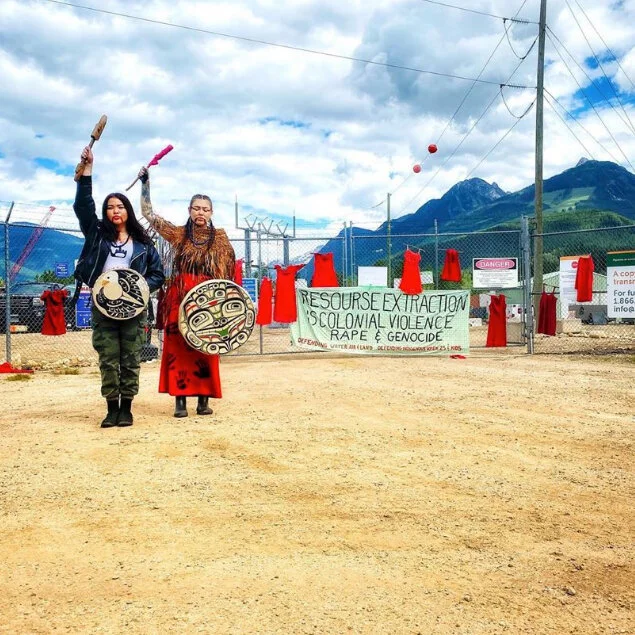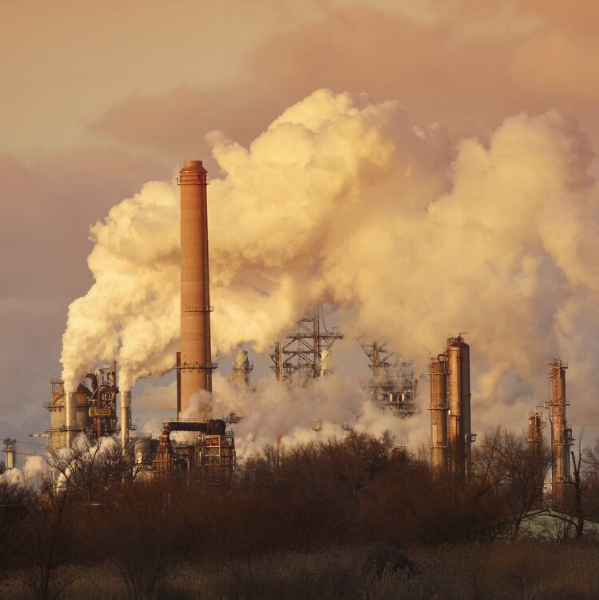Guy and Andrew remind us of the boundless wisdom that systems, at all scales, fail and it becomes our responsibility to respond to these failures with the willingness to listen, learn, and adapt as we cultivate resilience amidst uncertainty.
Read MoreTyson calls us to unbrand our minds and deeply interrogate where we are sourcing our thoughts from, the ramifications of becoming a trauma-obsessed society, and how to identify environments for emergence.
Read MoreGopal reminds us to think about the climate crisis as a message in which we are being asked to respond by tending to our all of relationships, not just reducing atmospheric concentrations of carbon dioxide.
Read MoreWe begin by looking at how kincentricity is different from many other ecological teachings that remain mired in the historical legacy of environmentalism and science, a legacy which has historically disavowed the human as a way to exalt their respective fields, instead, Enrique provides examples of humans being “keystone species”.
Read MoreWe look at how permaculture differentiates itself from organic gardening and agroforestry, while discussing the more salient critiques of permaculture in terms of appropriation, class, and privilege. David offers honest reflections on the origins of permaculture and its accessibility, and defines the importance of a quiet boycott.
Read MoreWe explore climate colonialism, reparations, carbon removal, and a real “just transition” with guest Olúfẹ́mi O. Táíwò. Our conversation reminds us that while climate colonialism is unfurling before us, there is a myriad of tangible ways countries and movements across the so-called global North could begin making reparations.
Read MoreHow do we navigate the settler desire to own land? Severine shares the messiness and opportunity of living amongst the prosperity of extraction in the spaces we inhabit while dedicating ourselves to a land-based livelihood that awakens the call to live inside of accountability to people and place.
Read MoreCamille shares the role of mother trees in forest regeneration, how mycorrhizal networks are faring, and the ramifications of large scale reforestation and afforestation efforts when they are not implemented thoughtfully and locally. We also talk about disturbances to forest ecosystems, the role of mycorrhizal networks, and the unbelievable importance of peatlands.
Read MoreIn this powerful conversation with land defender Sii-am Hamilton, we are invited to discuss futuristic ways forward in recognition that Indigenous communities have been practicing creative resistance against colonialism and capitalism for hundreds of years.
Read MoreDeb, Vanessa, and Rachael share about the 2019 fires, the role of Indigenous women in cultural burning, the relationship between kin and fire, and how the intensity and scale of these bushfires need to be situated in context to the Australian government’s continued aggressive expansion of fossil fuels and coal mining.
Read MoreAyana and Kyle discuss Kyle’s body of work on dystopia and fantasy in climate justice, the reproduction of settler structures, Indigenous science, vulnerability discourses, and “decolonizing allyship.” Kyle concludes with the ever present reminder that our work must be rooted in consent, reciprocity, and trust.
Read MoreAyana, Julian, and Jade unpack the Green New Deal policy proposal, explore the creative potential of media and narrative production, and replant the seed of tending community power.
Read MoreCamila Thorndike shares how the tax code can address societal ills, the difference between cap and trade and carbon tax, how policy arrangements reflect our values, and how we can create a price on carbon that is inclusive, progressive, and benefit communities that are often exploited by the so-called green market.
Read MoreJanine encourages us to live by the questions, “What would nature do here?” And, “What wouldn’t nature do here?” This Thursday, listen to Janine expound upon the power of Biomimicry as a force for regeneration.
Read MoreThe advent of modern technology within deeply misguided institutions and cultures has accelerated the near-demise of the biosphere. Our guest, Dr. David Shearer, argues that coupled with a deep awareness of ecological realities, visionary technology can benefit nature and society, and perhaps even help avert a worst-case climate disaster.
Read MoreMiriam Horn has worked at the Environmental Defense Fund since 2004. She is the author of three books
Read MoreThe pace of climate breakdown has greatly outpaced projections, and will continue to accelerate as these tipping points are reached—unless!—there were a secret power we could harness to pull CO2.
Read MoreBren Smith of Green Wave is determined to pioneer and popularize a food system that carries marine restoration in its very architecture. Having spent his life on the seas from Newfoundland to Alaska, Bren has witnessed first hand the collapse of global fisheries.
Read MoreOur very survival in the face of the inevitable collapse of modern civilization, Peter suggests, depends on us remembering ancestral skills and strengthening the native plant populations that sustain us.
Read MoreLeila Darwish is a community organizer, author, permaculture designer, educator, urban gardener, and grassroots herbalist with a deep commitment to environmental justice, decolonization, food sovereignty, and to providing accessible and transformative tools for communities
Read More



















